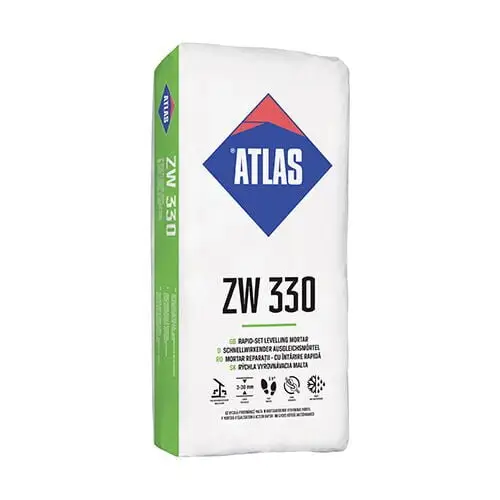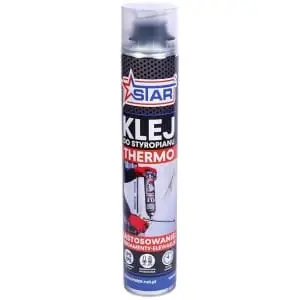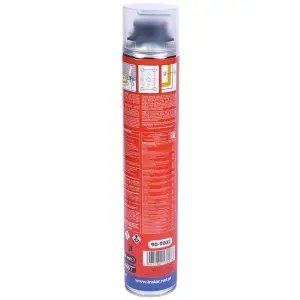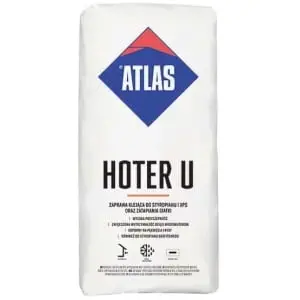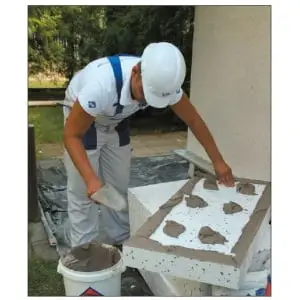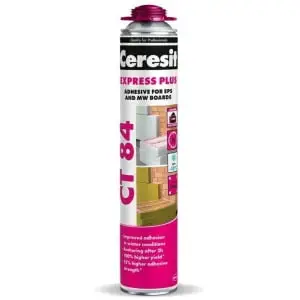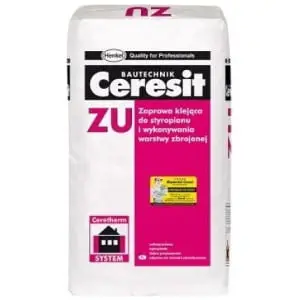Product description
• Repairing building substrates inside and out:
– filling cavities and levelling other irregularities in the substrate,
– corner reconstruction,
– filling grooves left by decommissioned installations both in floors and walls, after point or line drains,
– full-surface levelling of walls including plastering up to 3 cm,
– additional thick surface reinforcement using glass fibre mesh,
– repair of window reveals when replacing joinery,
– repair of balcony slab edges, corners of beams, columns and stairs, restorations and repairs to floors,
– shaping facets,
– plaster restoration,
– formation of slopes in linear drains, terrace and balcony sleepers,
– masonry restorations at penetrations through the building wall.• Making subfloors bonded to the subfloor.• Type of substrate to be repaired – cement and cement-lime plaster, concrete, aerated concrete, cement screeds, as well as unplastered brick and ceramic or silicate block walls.• Type of finishing layer – ceramic tile cladding, plaster, thin layer plaster, floor panels, etc.
– filling cavities and levelling other irregularities in the substrate,
– corner reconstruction,
– filling grooves left by decommissioned installations both in floors and walls, after point or line drains,
– full-surface levelling of walls including plastering up to 3 cm,
– additional thick surface reinforcement using glass fibre mesh,
– repair of window reveals when replacing joinery,
– repair of balcony slab edges, corners of beams, columns and stairs, restorations and repairs to floors,
– shaping facets,
– plaster restoration,
– formation of slopes in linear drains, terrace and balcony sleepers,
– masonry restorations at penetrations through the building wall.• Making subfloors bonded to the subfloor.• Type of substrate to be repaired – cement and cement-lime plaster, concrete, aerated concrete, cement screeds, as well as unplastered brick and ceramic or silicate block walls.• Type of finishing layer – ceramic tile cladding, plaster, thin layer plaster, floor panels, etc.
Main properties
ATLAS ZW 330 mortar is produced as a dry mixture of the highest quality cement binder, quartz fillers and refining additives.
- Allows a very quick start to subsequent work – under normal conditions, the tiles can be laid after approx. 5 hours (at a layer thickness of 5 mm).
- Reduces wear and tear on adhesive mortars, plasters and floor underlays and flooring.
- Plastic consistency – the working parameters ensure easy application and the desired filling of cavities in the repaired surface.
- High mechanical strength:
– compressive min. 20 MPa
- – bending min. 4.0 MPa.
- Reinforced with polypropylene fibres that:
– reduce cracks resulting from shrinkage during mortar setting,
- – allow thicker layers of mortar to be applied to vertical surfaces without run-off effect,
- – ensure even water transport during drying.
- No shrinkage cracks.
- A wide range of layer thicknesses – from 3 to 30 mm in one pass – moreover, when mixed with quartz sand (grain size up to 2 mm) at a weight ratio of 1:4 (sand : dry mortar), layer thicknesses of 31 mm to 60 mm can be extended (when filling cavities and levelling horizontal surfaces).


